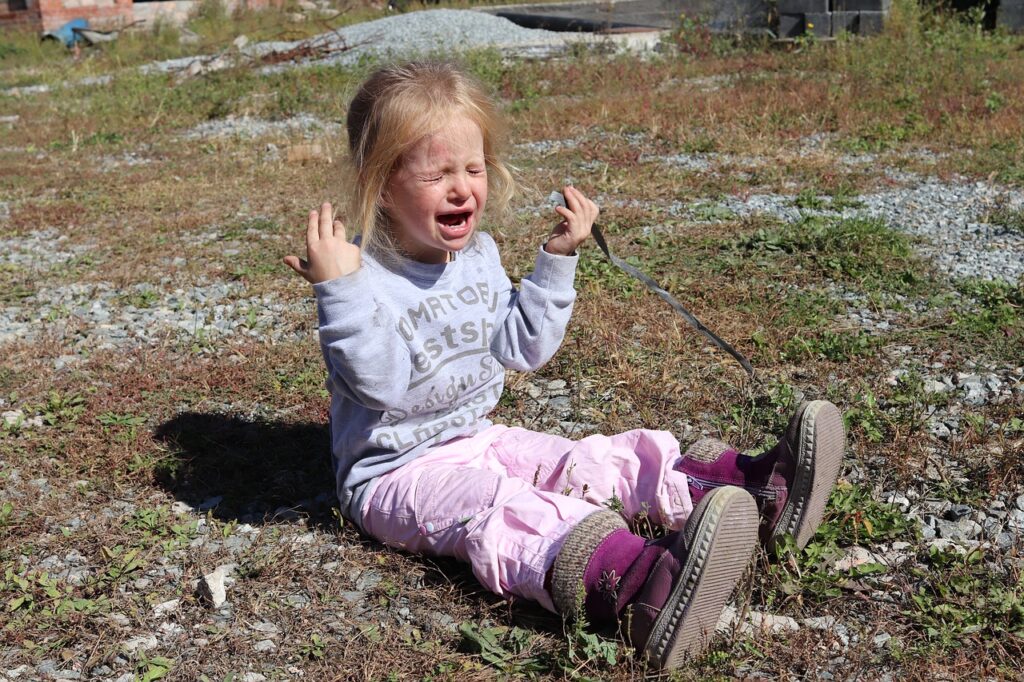Parenting is a special skillset that can be taught but if you ask many parents they keep learning something new every step of the way. Every child is unique and different and requires different styles of parenting.
It can be very scary for first-time parents as they are timid and shy about doing something wrong.
Parenting is a learning process for all moms and dads. There is no one way or wrong way. You have to understand the needs of the child and how to love them in a way they will thrive.
Raising children not only takes time and energy but will require you to use skills such as emotional intelligence and mental endurance.
Here are 3 ways to be more skillful at parenting.
Communication is key to better parenting
Children do not understand that we as adults have a large number of responsibilities and burdens that we have to take on every day.
From the moment they wake up to the moment they fall asleep they want your full and undivided attention on them, this is even more true for families with one child.
Maybe you had a bad day at work or unexpected problems came up. On these days the days seem longer than most and cause you become too mentally and physically exhausted toward effective parenting.
Your child is pulling on your arm and shirt for your attention, as you try to quickly finish some chores at home so you can call it a day, they keep calling for you like a broken record with no off switch.
Calling turns into yelling and screaming as they desperately need your immediate attention. Out of exhaustion, you quickly snap at them.
As a quick moment of silence breaks out, even you become shocked at your hasty response.
Their faces turn to disappointment as they wanted your attention to show you a proud picture they drew for you, everyone comes out of this situation unfulfilled.
Parenting is a hard job. It requires all of our senses to be alert and on point. On many days it is much harder to divide all of our energy and attention evenly.
Communication builds better understanding between children and their parents. Of course, the communication levels will depend on the children’s level of understanding and logic.
You don’t have to go into detail about the heavy stuff to your children. Communicate to them the why’s. Why on some days you might need 10-15 mins of just quiet time right when you walk in the door from work.
Why you might need them to do their part with some chores, and how it could free up more time for you to spend with them.
Sometimes we speak to our children as if they have the mental reasoning as adults. We expect them to know and understand many things without explanation.
This is especially true for families with children who display early intellectual abilities and quick motor skills.
We forget that they are still young children who are still relying on us to teach and help them.
The great thing about children is that they are very curious about the world around them. They love learning about all they can, especially when taught by their parents. The people who they love and admire the most.
With more communication, we open channels of understanding to be open to more love with each other.
There will be times when you need some quiet time to decompress or to shake off the day, explain to your children that you just need some ‘’recharging time’’ because your battery is running low. Just like their electronic devices that have to be recharged once in a while.
You can give them a task or an activity to solve while you have a quick minute to gather your thoughts.
Then this way you can calm your nerves without hurting their delicate feelings. Most children are delicate and sensitive when it comes to their parents’ affection. Some might display emotional toughness, but all children want love and affection from their parents equally.
Don’t take it personal

Your children do not plot and plan misbehaviors at times when it is inconvenient for them.
The problem is that they act and react to things according to how they are feeling at the moment. Young children are very transparent about their emotions, they let you know when they are hungry, tired, upset, or hurt.
Parenting is a skill that requires you to keep your wits about yourself. It is a skill that requires less of an emotional response and more of a logical and psychological approach. The more your child displays moments of emotional outbreaks and temper tantrums is the more you have to keep your wits about you.
You will not be able to alleviate the problem as quickly and as effectively if you also become emotional yourself.
Children rely on their parents to survive and thrive in life. You are the leader and authority figure, the moment your emotions become erratic you lose the sense of judgment and clarity. If they also see you react it will be harder to restore order.
Keep in mind that what they say and do is nothing personal to you, as a matter of fact, it is all about them and how they can get what they want at the moment.
Before you react put yourself in their shoes to see if you can understand why they are behaving this way.
How you react to and respond to your children’s behaviors paves the way for how they will be replicated the same behaviors in the future.
During times of the child’s emotional distress try not to give in to quickly keep them quiet or reacted with another negative response.
With young children, it is best to negotiate and persuade. Yes, it all sounds easy when you are balancing multiple children or tasks, but the moment you lose your nerves and focus they run the show.
Intuitively children understand that you are the leader because they have to rely on you for their survival.
If you do not stand firm in this position they will use negative emotional responses as a mechanism to acquire what they want.
If they don’t immediately get their way, once you have lost your authority, they will make it hard for you, especially in public.
Parenting 101: When your child is has emotional outbursts
- Once your children are misbehaving, understand what is the trigger
- Respond to them in the same tone as you do normally when you talk to them
- Remain unfazed by their emotional reaction
- Sometimes it is best to leave the environment, let them settle on their own, and try again.
- When you talk with them use negotiation and persuasion, it is best not to lie to them to help them calm down.
Teach children to be independent early on
I know you must have a million and one things on your plate. If you have multiple children, then you have to divide your attention.
With young children, it takes a little time and effort to teach.
Once they understand certain concepts it becomes easy for you and them later.
Some of us find it easier to just do things for our children because for one it is quicker and two, we rather just do it to have it done right.
We must remember that when we were children learning ourselves it also took us time and practice to become who we are today.
You can teach children at an early age to be independent and to learn how to do a certain task for themselves.
You have to go in with the mindset that it will require some patience on your part in the beginning but in the future, it can potentially free up more time and energy while Lessing some burdens for you.
Being independent is a life skill that children should be equipped with. These concepts are hardly taught in schools.
The sooner young children are taught to be self-sufficient the more independent-minded and self-esteem they will have.
They rely less on others emotionally and physically while gaining more confidence in themselves and their abilities.
Encourage your children to be self-sufficient, start by making small tasks into games. Praise them and congratulate them on a job well done after each task is finished. Tasks and responsibilities should become harder as they advance.
Remember to take a step back and just let them try to do these tasks on their own. Even if they fail the first couple of times, you must be firm in your convictions to let them do it on their own.
As parents, our job is not only to nurture our children but to also teach, guild, and mentor these children to become adults who can fully function in this world to become the next generation of parents that will have their own family and raise their kids one day.
There are cycles in life, how you raise your children will be the experience they will be equipped with to pass on the to next generation and so forth.
Many people find great fulfillment in having children because from start to finish you are the creator, the nurture, and the protector.
With our skills and abilities, you watch something so tiny blossom into something so special and significant.
As our children become adults we also get to watch them take part in raising and nurturing our grandchildren.
Having and raising children gives us a very unique and special experience that nothing else in the world can compare.
While having to live life, go to work and pay bills I know that we all become tired and mentally exhausted from time to time.
We sometimes question our abilities as parents and maybe are even told that our parenting styles are not up to par.
It can hurt to think that maybe our best is not good enough for our children sometimes.
Know that one thing that is precious about children is the love they have for their parents. This is why children are said to be gifts. As children, they love their parents unconditionally.
You might mess up sometimes, we all do. You might have been short with them when your patience has run out, or per hasped acted in a way that you later regretted.
The important thing is to move with your best foot forward.
Life doesn’t stop because you messed up or your children don’t stop needing your love and care just because you had a bad day.
Understand that a child’s love for his or her parent is unconditional. They look at us with very special eyes, let’s do our best not to let them down.




